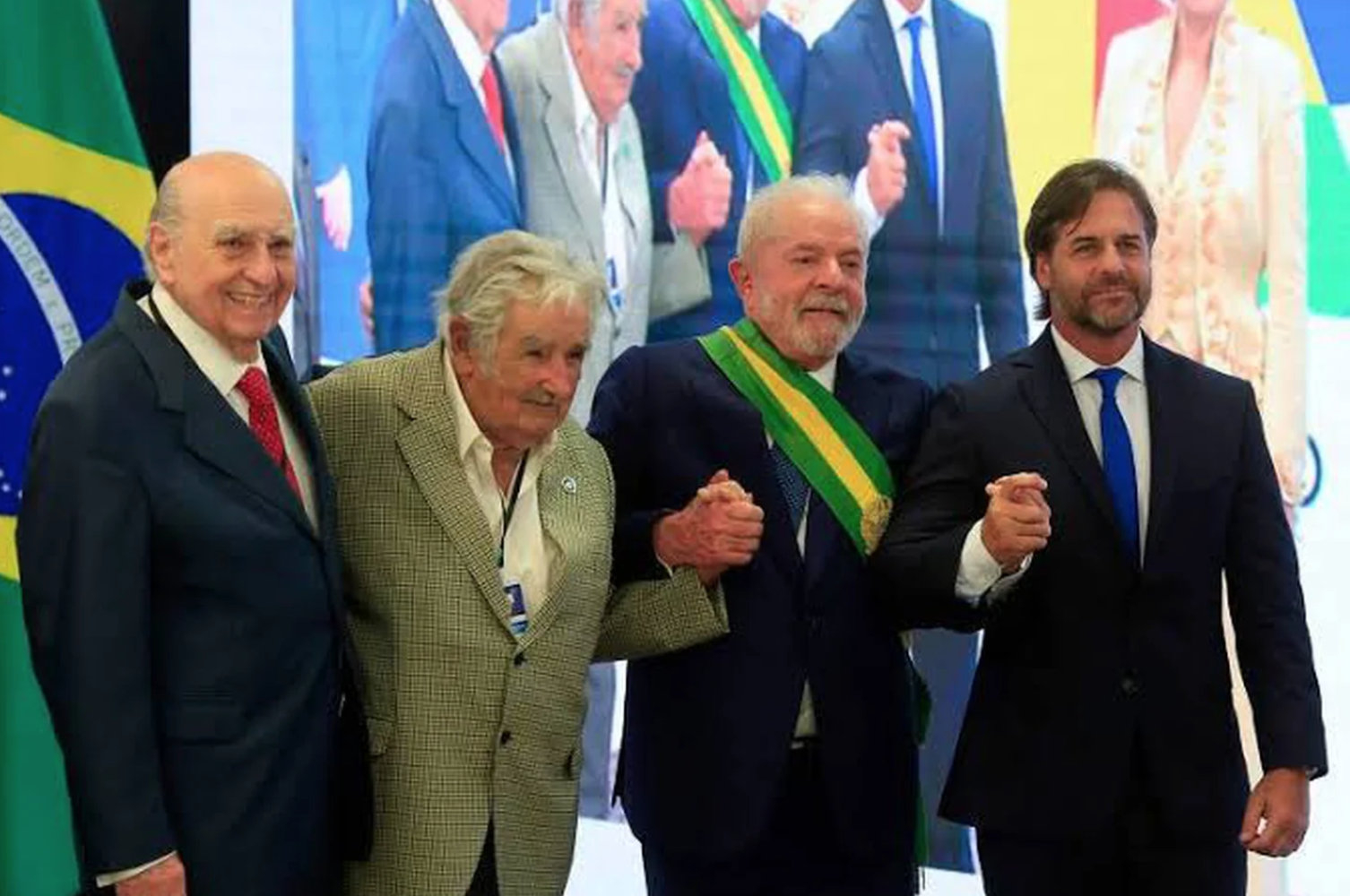Uruguayan democracy is strange and surprising. A democracy in which presidents begin and end their mandate in due time and form, cannot (and do not seek) to be reelected without another term, hand over the attributes of office to their successor from another party, and continue to share naturally ceremonies and public events in their country and also abroad, where they even attend together the inauguration of other presidents.
That this is strange and surprising speaks well of Uruguayans and not so well of us, an “us” that extends throughout the democracies of the region, where the esteem and trust of (and among) politicians is on the floor, on social and political networks strongly torn by polarization and discontent.
The inauguration of Luiz Inácio Lula da Silva on January 1 in Brasília was attended by thirteen presidents and heads of government from all over the world. But Uruguay was a notable presence: it was represented by President Luis Lacalle Pou, who was accompanied by former presidents Julio María Sanguinetti and José “Pepe” Mujica. The image of the new Brazilian president surrounded by the three Uruguayan presidents was eloquent. A similar picture, for example, of the current Argentine president Alberto Fernández and his predecessor Mauricio Macri traveling together to the event would have been unimaginable. Not to mention the rest of the representations of neighboring countries (Paraguay, Bolivia, Peru, Ecuador, Colombia, and Venezuela) where rulers and opponents consider each other as bitter enemies.
And it is not that Lula’s return to government for the third time was not transcendental for the other governments. In fact, the new Brazilian president will go to Buenos Aires on his first trip abroad to attend the summit of the Community of Latin American and Caribbean States (CELAC) on January 23 and 24, and it is expected that important agreements will be signed to revitalize the ailing Mercosur and bilateral ties, which have been reduced to a minimum during the Bolsonaro administration.
For Uruguay, the issues that mark foreign policy have nothing to do with political-partisan affinities or ideological orientations of diverse government: when representing the country at a major international event, the voices of its leaders are expressed jointly. This gesture, far from a mere protocol or formal image, acquires a great symbolic character and an eloquent demonstration of institutional and republican continuity. Such a gesture reinforces its regional significance after the events of last Sunday, January 8 in Brasília, because the entire political leadership, with some degree of responsibility, of all Latin American countries, should be forewarned before the attempted coup d’état in Brazil. The bells are ringing for all of them, for all of us.
Uruguay seems to be an exception in the global and regional panorama: it tops the democracy rankings in Latin America and the world. In the annual 2022 index published by The Economist, it ranks thirteenth globally and also stands as the leading nation in democracy in Latin America. This report analyzes the situation of 167 countries and evaluates measures such as electoral process and pluralism, government functioning, political participation, political and democratic culture, and civil liberties.
In 2022, Uruguay increased its score from 8.61 to 8.85 out of 10 and ranked first in Latin America, above Costa Rica and Chile. With this evaluation, the Charrúa country is qualified as a “full democracy”, a situation experienced by only 6.4% of the world’s population, according to The Economist.
The report coincides with other estimates that have been pointing out the decline of democracy, when in 2020 the overall score was 5.37 out of 10, and in 2021 it fell to 5.28. In Latin America, the fall was stronger, with a drop of 0.26 points compared to 0.22 in North America and 0.16 in Asia and Australia.
In this panorama, a small country stands out, showing its strength in the face of the largest, and an example for a region affected by the vacancy of leadership and statesmen, in which the coexistence between the ruling and opposition groups has been broken or is no longer a value. At the same time, it points out the importance of fundamental agreements to move a country (and a region) in one direction or another, beyond the orientation of its governments.
In other words, the way we are going to face the journey is as important as knowing where we intend to travel as a country. And Uruguay offers a comparative advantage in this area that deserves to be seen as an example to be followed rather than an exception to the rule in the current regional context, which appears to be a real minefield.
*This text was originally published in Clarín, Argentina.
Translated from Spanish by Janaína Ruviaro da Silva











